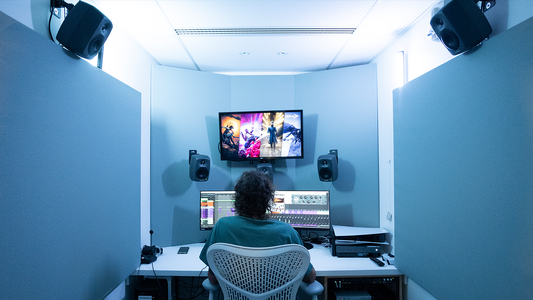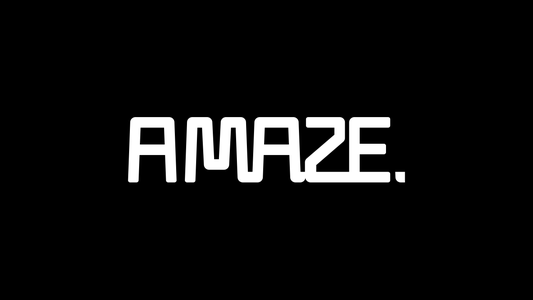Summary:
With development tools and game engines becoming cheaper and freer and the rise of engine-specific content marketplaces, an entirely new type of career is emerging: a self-sustaining, independent content developer that creates standalone products for sale to developers across the world for use in their projects. Whether it’s art, audio, code, scripting, or some combination thereof, I'm sharing my tips, tricks, and insights as the former Content Curator of the Unreal Engine Marketplace to give you and your company ideas for marketing, and how to be a developer's developer. This is not a self-sustaining career for everyone, but I'll show you what I've learned so you can decide if this makes sense for you or your company.
Introduction
Over the last few years, online marketplaces for content created by developers for developers have emerged as an increasingly viable option for independent game developers to prototype and develop their projects. This saves them thousands of dollars commissioning work from other developers, and also thousands of hours learning new peripheral skills that distract from simply prototyping and executing on their ideas. Inspiration strikes quickly and ultimately it’s about the end product. Having access to low-cost content and tools built by professionals is a valuable resource. I'll show you how to benefit from that as an indie developer, a content creator, a contractor, or any combination thereof.
From sellsword to selling swords
Over the last few years, many developers have started selling content that they develop for fun and turned it into a lucrative sideline. It’s a dramatic shift away from making money as either a full-time employee or a work-for-hire contractor. Selling components of a game as a product instead of a service is a very exciting and different way to develop games, especially with engine costs approaching zero. Many of them have actually become so successful at it that they’ve been able to leave their fulltime jobs and live on the income they generate. Again, they are in the vast minority on this, but it is starting to happen, and it's worth paying attention to. Whether or not you go down that path yourself, it can benefit you to be aware of people that do, because their efforts can benefit you and your projects.
What do I want to sell?
What’s your skillset? Artist, designer, scripter, coder, musician, or some blend thereof? Let’s start there.
Your junk drawer isn’t hot product
First, cast aside any idea that you can take old content you have laying around and can quickly flip it for cash. That’s the wrong mindset. Rummaging through your junk drawer to make a quick buck only fulfills your needs. And don’t think you can just crank out something simple in a single weekend and sell that. Your best chance for succeeding in this is developing content that fulfills the needs of other game developers, and this requires planning, research, and forethought. Being a developer yourself will give you some valuable insights into that, but you’re developing products for a large-scale audience, and that must always be kept in mind.
Focus on your strengths
Start from a position of strength. Don't learn a completely new skillset to compete in a market already full of experts in that skill. That's a frustrating uphill battle and not worth your time. To keep yourself motivated and encouraged enough to see this through, focus on creating something using your strongest skillset. The creative challenge is "how do I design this to save the time of a large number of developers?"
Is there a market for this?
People purchase content based on their passions and ambitions and the things that inspire and influence them. When they shop for content, they think of the pieces they need to assemble into the type of product they want. People first decide on the type of game they want to develop, and the first thing they seek is a "starter kit" for that type. The most popular type of product I've seen are prototype kits to fit specific game types. For example, kits for an RTS, RPG, FPS, tower defense, endless runner, and so on. After their prototype is at minimum functionality is when they look for art and audio. These markets are surprisingly large and are a great opportunity for independent content developers.
Popular themes and trends
In early 2015, I saw a spike in Minecraft-style crafting, survival, horror, and zombies. Each tied into the hot property of the moment, offset by the weeks it took to develop the content after the inspiration. People would create a set of props designed for survival games. Another example is a Blueprint-based crafting system for either Minecraft or survival games. Others created horror-themed audio packs, modular zombies, animated blood splatters, etc. The creators analyzed the games, reduced them to modular components, then designed content to mix and match.
Pick a niche
Pick your genre, theme, style, and platform. You can't be all things to all people. If you're not sure where to start, look at what the top selling games are in the last year. Then research what the biggest upcoming games are, based on press coverage and hype. Here's a sampling of games:
Popular games and styles
Fallout 4. First-person RPG, realistic post-apocalyptic, next-gen platforms.
Madden NFL 16. Sports, realistic, next-gen platforms.
Call of Duty: Black Ops 3. First person shooter, realistic war game, next-gen platforms.
Legend of Zelda: Twilight Princess. Third person RPG, stylized\cartoony fantasy, Nintendo console.
Halo 5: Guardians. First person shooter, realistic sci-fi, next-gen platform.
Gran Turismo. Third person racing game, realistic, next-gen platform.
Super Smash Brothers Brawl. 3D fighting game\brawler, cartoony, Nintendo console.
World of Warcraft. Third-person RPG, cartoony fantasy, PC.
The Elder Scrolls V: Skyrim. Third-person RPG, semi-realistic fantasy, next-gen consoles.
Minecraft. First person world-builder, cartoony retro, current-gen consoles and PC.
Select your audience
This is a reasonable spread of the art styles and types of games that move a lot of units. These are the kinds of games that get the most attention from people at a broad level. They set trends that aspiring independent developers will emulate for their own projects. However, most of these are big-budget AAA productions. Customers seeking themed content inspired by these trends are usually small teams with modest budgets. It's important to factor that in, and to stay in touch with what's going on in the indie game dev community. Keep an eye on those trends, ebbs, and flows.
Understand the indie games market and its trends. Follow indie game dev websites to see what's popular. What are people building? How do the games review? Identify gaps that need filling. Look for ways to simplify repeatable processes, especially if they're annoying. Finding annoying problems and solving them is a great way to win the hearts and dollars of potential customers. Bonus points if your product or description is worded in such a way that it can get favorable search rankings when people are looking to solve that type of problem.
One excellent resource to find out what people are playing and what developers are creating is www.steamspy.com. That is a gold mine of information to help you market and design products. Write it down now. It's one of those things that's so amazing, you can't believe it actually exists.
Keep an eye on geek culture
It’s also well worthwhile to tune into other forms of media and geeky culture. Is there a major movie, TV, or comic book release coming in the next few months? Something big, like an Aliens sequel, a new Avengers movie, the new season of Daredevil, the TV adaptation of Preacher, or really any other influential, beloved property that’s going to land in the coming months. Even science can be exciting and drive sales. When I was running the Unreal Engine Marketplace, I saw a massive spike in space-themed content of all types after NASA started showing off the high-res closeup photographs of Pluto. Tying in your product to something reminiscent of that need or that ties into it meaningfully could be a good way to drive interest and sales. Follow indie game dev websites, see what’s popular, see what people are building, and analyze your competition to see how well that need is being filled.
Reduce the games to components
Pick apart the games and think of what types of components they're made up of. For example, Fallout 4 is an RPG. An RPG has various systems that can be reduced into modular component parts, NOT counting art and audio:
character creation (visual customization + UI)
combat (weapon types, enemy types, damage, etc)
armor (defense bonuses, etc)
weapons (damage bonuses, weapon modding, etc)
XP \ leveling
vendors (buy\sell\repair)
minimap (tracking agiainst real map, fog of war, etc)
speech and branching dialogue systems
quests (quest givers, and ties into XP\leveling, speech, etc)



































